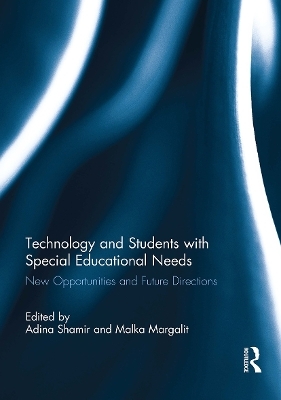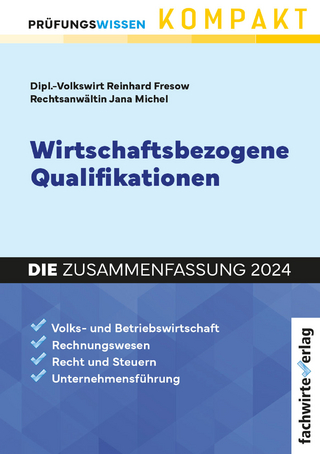
Technology and Students with Special Educational Needs
Routledge (Verlag)
978-1-032-93026-8 (ISBN)
This book was originally published as a special issue of the European Journal of Special Needs.
Heterogeneous classes including students with Special Educational Needs (SEN) are increasingly becoming fixtures of the twenty-first century school. As a result, the question of how to devise more effective, innovative and diverse tools has posed a significant challenge for educators and the research community. This collection considers how technology may provide SEN children with greater opportunities to acquire academic skills, while preparing them for a successful transition to adulthood.
Computers, and other new technologies, hold great promise for facilitating the inclusion of SEN individuals into modern society. Precisely because they are characterized by multiple representations of knowledge, computerized learning environments offer effective support tools for the instruction of SEN students faced with barriers that make learning a more complex process.
Yet, despite the blossoming of this field, research on how the use of technology may benefit SEN students is in its early stages. The development of the theoretical knowledge and empirical databases necessary to assess the impact of computers on learners’ characteristics and educators' teaching goals lag behind the introduction of the respective technological innovations. To meet this challenge, this volume presents a review of the latest advances in how new technologies and their software may potentially enhance SEN students' performance, in school and out.
This book was originally published as a special issue of the European Journal of Special Needs.
Adina Shamir is a Senior Lecturer at the School of Education, Bar-Ilan University, Israel, and has been serving as the School's Vice-Head since 2011 in addition to maintaining her position as Head of the Special Education Program. As an active member of several international organizations, from 2007 to 2011 she served as Head of the Special Interest Group on Children with Special Needs, part of the European Association for Research on Learning and Instruction (EARLI). Her work and publications reflect an interdisciplinary approach that combines technology, special education and early childhood education. Malka Margalit, PhD, is Professor Emeritus at Tel Aviv University and Dean of the School of Behavior Sciences, Peres Academic Center, Israel. Prof. Margalit is the vice president of the International Academy of Research in learning disabilities and on the Coordinating Board of the International Society for Research in Early Intervention. Her research includes the salutogenic approach in education and the hope theory for promoting resilience of children with special needs, their social – emotional development, and coping with their loneliness.
Introduction: Technology and students with special educational needs: new opportunities and future directions Adina Shamir and Malka Margalit 1. The effectiveness of assistive technologies for children with special needs: a review of research-based studies Dorit Maor, Jan Currie and Rachel Drewry 2. Open access to living books on the internet: a new chance to bridge the linguistic gap for at-risk preschoolers? Marianne J. van Dijken, Adriana G. Bus and Maria T. de Jong 3. The effect of activity with e-book on vocabulary and story comprehension: a comparison between kindergarteners at risk of learning disabilities and typically developing kindergarteners Adina Shamir, Ofra Korat and Inessa Shlafer 4. Meal-Maker: a virtual meal preparation environment for children with cerebral palsy Sharon Kirshner, Patrice L. Weiss and Emanuel Tirosh 5. Three-dimensions vs. two-dimensions intervention programs: the effect on the mediation level and behavioural aspects of children with intellectual disability S. Eden and M. Bezer 6. State-of-the-art of virtual reality technologies for children on the autism spectrum Sarah Parsons and Sue Cobb 7. Social Stories™: a possible theoretical rationale Georgina Reynhout and Mark Carter 8. Virtual friendships and social distress among adolescents with and without learning disabilities: the subtyping approach Adi Sharabi and Malka Margalit 9. Fathers’ marital satisfaction and their involvement with their child with disabilities Józefa Bragiel and Przemyslaw E. Kaniok
| Erscheinungsdatum | 16.10.2024 |
|---|---|
| Zusatzinfo | 2 Illustrations, black and white |
| Verlagsort | London |
| Sprache | englisch |
| Maße | 174 x 246 mm |
| Gewicht | 258 g |
| Themenwelt | Schulbuch / Wörterbuch ► Unterrichtsvorbereitung ► Unterrichts-Handreichungen |
| Sozialwissenschaften ► Pädagogik ► Sonder-, Heil- und Förderpädagogik | |
| ISBN-10 | 1-032-93026-8 / 1032930268 |
| ISBN-13 | 978-1-032-93026-8 / 9781032930268 |
| Zustand | Neuware |
| Informationen gemäß Produktsicherheitsverordnung (GPSR) | |
| Haben Sie eine Frage zum Produkt? |
aus dem Bereich


